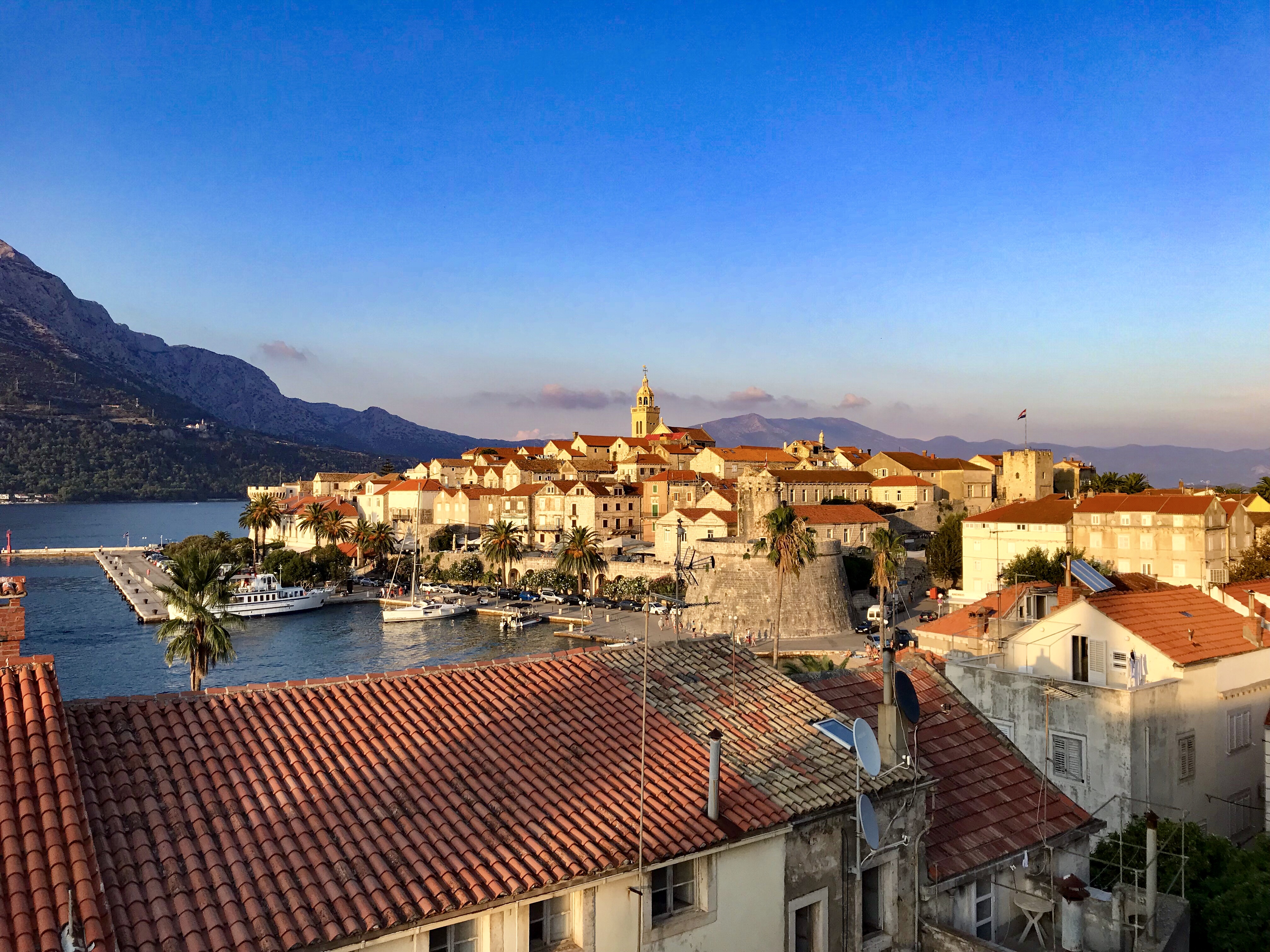Caught in our stories

(By John Atkinson)
The old town of Korcula on the Dalmatian Island of the same name is no more than 750 m across. As the guides say, if you get lost, you’d best come and explain how you managed it. Aside from its principle thoroughfare it is composed of a grid of small, straight-ish alleys, hung with washing and giving views out to the sea below. Built as a fortress, legend says it was founded by Antenor, legendary counsellor to King Priam of Troy.
The island was settled long before, and whatever the truth of the legend, a succession of peoples have come and gone over history in what has always been a key strategic point along the coast. Illyrians, Greeks, Romans, Croats and eventually Venetians all held sway here. The narrow streets made for a tight-knit community but not one that was insular despite the setting. People here learned long ago that although you may need to fight to protect your interests, sometimes you must simply learn to get along with larger and more difficult neighbours.
Nowadays you cannot explore the town without encountering the legend of Marco Polo and the house of his birth. Tourist shops sell replica brass compasses which you are assured are functional and safe to sail by, alongside telescopes, sextants and t-shirts with his quotes and boats.
Except of course, Marco Polo was most likely born in Venice. And the locals, despite their protestations most likely know this too. It doesn’t matter. The Depolo family lived here and that is enough. The story has become ‘truth’ and adds to the sense of specialness that exudes from the place and its people.
And so it is with all of us. Through our histories, however we remember or create them we define who we are. That they may hold little truth or carry grave errors of omission matters not. Who we are is formed through the tales we tell of what we have done. Our sense of the past shapes our decisions in the present and thus defines our future.
Sisyphus, for his self-aggrandisement and deceit, was condemned by the Gods to constantly roll a boulder to the top of a hill only for it roll back over him to the bottom, crushing him as he nearly reached his goal. We are spared such a brutal reminder of being locked in a constantly repeating story, yet, none the less, we are constrained by the patterns that emerge and that we create from all that has gone before. The timeframe of our pattern may be generations, the significance of ‘current events’ being thus lost on those with little memory of the distant past. We become comfortable in our old shoes, convinced that the new is never as comfortable or made so well.
Breaking a pattern begins not by searching for the future but by looking to the past. Time after time people try to persuade me not to dwell there, we know our history, concentrate your efforts on making something new. And so we remain caught in the loop, unable to see it for what it is, our thoughts blocked in Sisyphean self-fulfilment.
If you want a new strategy, you need a new story. So it’s worth pausing, taking time to uncover how you really came to be here. We rarely separate fact from fiction in our own stories, we rarely look for the patterns. And so they snare us. Despite our energies and efforts, without a pause for reflection, only by chance do we break the cycle and genuinely create the new. Such reflection is essential. It’s at the heart of the art of creating a wonderful future.